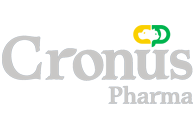Animal Pharm Article Cronus: Animal health’s buoyancy is spawning need for more cost-effective generic pharmaceuticals
September 21, 2020 – Cronus Pharma believes US FDA approval for its new manufacturing site will be a major milestone on its way to becoming a veterinary generic pharmaceuticals leader.
The East Brunswick, New Jersey-headquartered business started life bringing crossover drugs from the human
pharmaceuticals market into animal health. Now it has become a fully integrated animal health pharmaceutical specialist with R&D, manufacturing, sales and marketing capabilities.
To date, the firm has amassed 59 US new animal drug application and abbreviated animal drug application approvals from the FDA’s Center of Veterinary Medicine (CVM). These have been for generic pharmaceuticals and select brands, and cover multiple species. Cronus achieved these authorizations through a combination of organic growth and acquisitions.
While Cronus intends to continually build on its product portfolio through new authorizations, licensing, and acquisitions, the firm also expects to further stimulate rapid sales growth.
Cronus’ chief strategy officer Edward Neugeboren said: “We’ve built a brand-new manufacturing facility in Hyderabad, India. It’s solely for the animal health market – beginning with the US and expanding to the EU and other geographies. We decided trying to manufacture our products around the globe with a multitude of contract manufacturers would be an extremely challenging path. So, we made the strategic decision a few years ago to invest millions of dollars in a brand-new manufacturing facility on a green field operation near the Hyderabad airport.”
The site is finished and became fully operational last year with over 225 employees. Cronus is awaiting FDA approval of the facility so it can begin supplying the US market.
“There are not many fully integrated generic animal health pharmaceutical companies,” Mr Neugeboren told IHS Markit Animal Health at the recent virtual summit held by the Kansas City Animal Health Corridor. “This was our strategy from day one because of the market opportunity. We’ve always thought, and still believe, there is a very significant opportunity for high-quality generic pharmaceuticals that will benefit pet owners, veterinarians and distributors.
“There has not been that many companies that have made this type of investment on a broad base across R&D and manufacturing of numerous dosage forms across multiple species. If you’re going to be successful in the generic pharmaceutical industry, we believe you have to do all of the above.
“Other companies have built manufacturing but have been focused on contract manufacturing, private labels or a specific dosage form such as injectables. We’ve taken a broad portfolio approach.”
“We believe the opportunity is sizeable as over 70% of products that are off-patent do not have generic competition.”
While Cronus will continue utilizing its relationships with contract manufacturing organizations, the Hyderabad site is expected to produce the majority of the firm’s portfolio in the future.
Vet generic pharmaceuticals to reach full potential?
Mr Neugeboren said there are several factors that are currently limiting the size of the generic pharmaceutical market for animals in the US – barriers that could start to fall in the coming years.
“The veterinary generic pharmaceutical market grows a little each year because of the lengthy approval process, increasing regulatory requirements and potential regulatory issues with active pharmaceutical ingredients and/or manufacturer suppliers,” he explained.
“This is such a big factor. In any one month, there are only one or two generic products approved. The reasons for that are the high and increasing cost of filing coupled with increasing regulatory requirements. There are just not that many companies that have the financial wherewithal to do all of this. The market is not nearly as large as the human pharmaceutical market. In terms of resources, it is about 10-15 years behind the human pharmaceutical market.”
Cronus is a member of the Generic Animal Drug Alliance (GADA) – a US trade association that represents members’ interests before federal regulatory agencies. GADA continues to work with CVM to understand the growing regulatory requirements, as well as to harmonize global regulatory standards.
”Animal health stakeholders need a vibrant and balanced industry for all participants to be successful,” Mr Neugeboren noted. “We hope to get there sooner rather than later.”
Other members of GADA include Alivira Animal Health, Argenta, Bimeda, Ceva Santé Animale, Dechra Pharmaceuticals, Huvepharma, Norbrook Laboratories, PetIQ, Vetoquinol and Virbac, among others.
A new mainstream
Mr Neugeboren suggested increased awareness and adoption of generic pharmaceuticals by veterinarians and pet owners will ensure veterinary generics continue to grow in the future.
“There is no reason why we can’t have cost-effective and safe generic pharmaceutical products for animals,” he commented. “We believe, over the next 5-10 years, we will see an ever-increasing use of generic pharmaceuticals because, as the companion animal industry grows along with the food-producing animal industry, the need for costeffective quality generic pharmaceuticals will also grow. You can’t have one without the other.
“The brand companies shall continue influencing the market with more innovation but generic companies can co-exist. There is no reason why the veterinary generic market cannot be as efficient as the human generic market. You are not going to have 10 large generic pharmaceutical companies that you have in human pharmaceuticals, but there will be a few. We think we can be one of those players.”
The rising stock of generic pharmaceuticals plays into some wider themes being witnessed by the animal health industry in 2020, with trends of convenience and product accessibility becoming more prominent. Mr Neugeboren noted veterinarians are very price-sensitive and tend to use a lot of crossover products from human health when there is a cost disparity – highlighting the opportunity to introduce generic animal health pharmaceuticals.
While there are many animal health products that currently have no generic version, Mr Neugeboren also pointed out the high number of veterinary generic pharmaceuticals that do not have many competitors either. It is in this latter category where the transformation will continue for veterinary generic pharmaceuticals and a competitive sector can be built, he suggested.
Analyst Contact Details: Joseph Harvey

